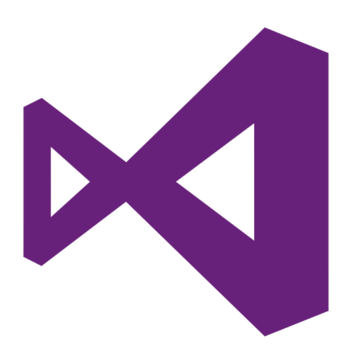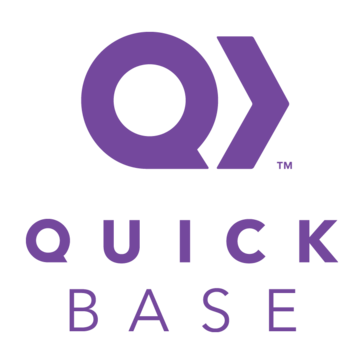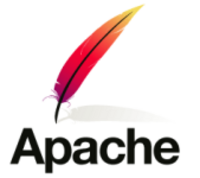
Heroku
This application development software streamlines the process of building, deploying, and managing applications, allowing developers to focus on creating exceptional data-driven solutions. With a rich ecosystem of over 150 add-ons and 380 open-source buildpacks, it offers extensive customization and scalability, making it ideal for projects ranging from prototypes to enterprise-grade applications.
Top Heroku Alternatives
Salesforce Lightning Platform
The Salesforce Lightning Platform empowers businesses to develop and customize applications with a focus on enhancing customer experiences.
Objective C to Swift Converter
The Objective-C to Swift Converter by Swiftify offers a robust solution for developers looking to migrate their applications seamlessly.
Bandwidth
In healthcare, Bandwidth empowers organizations to streamline communication without hassle...
App Cloud
App Cloud transforms application development by integrating CRM, AI, and data-driven insights, enabling businesses to enhance customer experiences collaboratively.
BiznessApps
Empowering customers with seamless ordering capabilities boosts revenue while rewarding loyal patrons fosters repeat business and enduring loyalty.
Salesforce Platform
The Salesforce Platform empowers developers to create and customize applications using low-code tools, seamlessly integrating CRM, AI, and data for enhanced customer experiences.
Visual Studio Team Services
By integrating agile tools and continuous integration/continuous deployment (CI/CD), it streamlines workflows, enabling teams to...
CleverTap
It enables businesses to harness big data for targeted engagement, real-time experimentation, and personalized interactions...
Quick Base
Its no-code visual builder allows business leaders, app builders, and tech admins to manage projects...
IBM DOORS Next Generation
It fosters collaboration across projects by providing real-time insights and analytics, ensuring stakeholders remain aligned...
OutSystems
Users can create intuitive apps for various needs—such as digital onboarding, employee portals, and customer...
Optimizely
With integrated AI and machine-learning, it enhances every step of the marketing lifecycle, ensuring effective...
Bizness Apps
With an intuitive drag-and-drop interface, it allows users to integrate features like mobile ordering, loyalty...
Apache Server
As a highly secure and efficient server, it has been the internet's most popular choice...
Codenvy Developer Workspaces
Built on Eclipse Che, it provides a secure, zero-configuration setup, enabling developers to easily access...
Heroku Review and Overview
Heroku is a cloud-based service provider finding a large user base in tech companies and startups all over the world. It was created in 2007 when the concept of cloud-based development was still in its infancy, and newer, more powerful yet convenient platforms were required for the development of cloud applications. Heroku provides an ideal platform as a service environment for developers to build their cloud-based apps. It supports many modern languages used for making applications, like Python, Java, Ruby, and Node.js, giving users a sense of flexibility while creating any kind of application.
Additionally, it is a polyglot platform in nature, making it extremely useful and compatible with several languages. The reliability of the platform is supreme and the app stability will be good even under a high network pressure. This, along with the additional modules it provides, such as team management, Postgres and enterprise service, makes Heroku perfect for teams of all sizes.
PaaS features that help app companies grow
The Heroku PaaS has been in development for a long time, and understandably, it has many features that help it stand out amongst its competitors. It uses a Dynos-type container that can be used to run a variety of applications developed in different IDEs, with increased stability. The Dynos system is extremely customizable, and developers can easily run complex codes by modifying the size, type, and the number of Dynos containers. These containers can hold applications written in Python, Node, Java, Clojure, PHP, Ruby, Scala and Go, and since the platform is polyglot, developers can easily run the same program in various languages, inducing code portability.
Faster development and operations through the cloud
Heroku also offers several other cloud-based solutions for a better application lifecycle. Examples include a Postgres and team management service. The Postgres service, operating on the PostgresSQL framework, is perfect for database management, while the Redis service can be used for various analytical purposes and determining the success of the application. The Heroku Teams is another powerful tool based on the Heroku cloud platform that can be used for allowing teams to work with maximum efficiency.
Top Heroku Features
- Simple app deployment process
- Fully managed PostgreSQL service
- Scalable Redis database service
- 150+ third-party add-ons
- 380+ open source buildpacks
- Support for any Linux language
- Instant rollback capabilities
- Customizable buildpacks
- Team collaboration management
- Heroku Metrics for insights
- Continuous delivery with Heroku Flow
- Disposable Review Apps for testing
- Network isolated runtime environments
- High compliance standards maintained
- Seamless Salesforce data sync
- Developer access via Identity Providers
- Expert application scaling support
- Efficient software delivery management
- Simplified application architecture design
- Quick one-click provisioning














